University of Washington
See the following -
‘An Embarrassment’: U.S. Health Care Far from the Top in Global Study
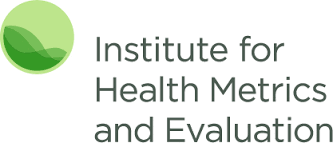 Americans grumble all the time about the quality of our health-care system, but when we're dealing with serious issues, such as injuries from an auto accident or cancer, we often count our blessings that we live in a wealthy country that has well-trained doctors with access to the latest medical technology. Yet those factors don't always correlate with staying alive. That's the distressing finding from a global study of what researchers call “amenable mortality,” or deaths that theoretically could have been avoided by timely and effective medical care...
Americans grumble all the time about the quality of our health-care system, but when we're dealing with serious issues, such as injuries from an auto accident or cancer, we often count our blessings that we live in a wealthy country that has well-trained doctors with access to the latest medical technology. Yet those factors don't always correlate with staying alive. That's the distressing finding from a global study of what researchers call “amenable mortality,” or deaths that theoretically could have been avoided by timely and effective medical care...
- Login to post comments
10 of Today's Really Cool Network & IT Research Projects
University at Buffalo and Northeastern University researchers are developing hardware and software to enable underwater telecommunications to catch up with over-the-air networks. This advancement could be a boon for search-and-rescue operations, tsunami detection, environmental monitoring and more. Sound waves used underwater are just no match for the radio waves used in over-the-air communications, but the researchers are putting smart software-defined radio technology to work in combination with underwater acoustic modems...
- Login to post comments
How Computers Broke Science – and What We Can Do To Fix It
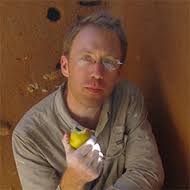 For most of the history of science, researchers have reported their methods in a way that enabled independent reproduction of their results. But, since the introduction of the personal computer – and the point-and-click software programs that have evolved to make it more user-friendly – reproducibility of much research has become questionable, if not impossible. Too much of the research process is now shrouded by the opaque use of computers that many researchers have come to depend on. This makes it almost impossible for an outsider to recreate their results. Recently, several groups have proposed similar solutions to this problem. Together they would break scientific data out of the black box of unrecorded computer manipulations so independent readers can again critically assess and reproduce results. Researchers, the public, and science itself would benefit.
For most of the history of science, researchers have reported their methods in a way that enabled independent reproduction of their results. But, since the introduction of the personal computer – and the point-and-click software programs that have evolved to make it more user-friendly – reproducibility of much research has become questionable, if not impossible. Too much of the research process is now shrouded by the opaque use of computers that many researchers have come to depend on. This makes it almost impossible for an outsider to recreate their results. Recently, several groups have proposed similar solutions to this problem. Together they would break scientific data out of the black box of unrecorded computer manipulations so independent readers can again critically assess and reproduce results. Researchers, the public, and science itself would benefit.
Is the Grace Hopper Open Source Day 2015 a Turning Point for Open Health and Humanitarian Open Source Projects?
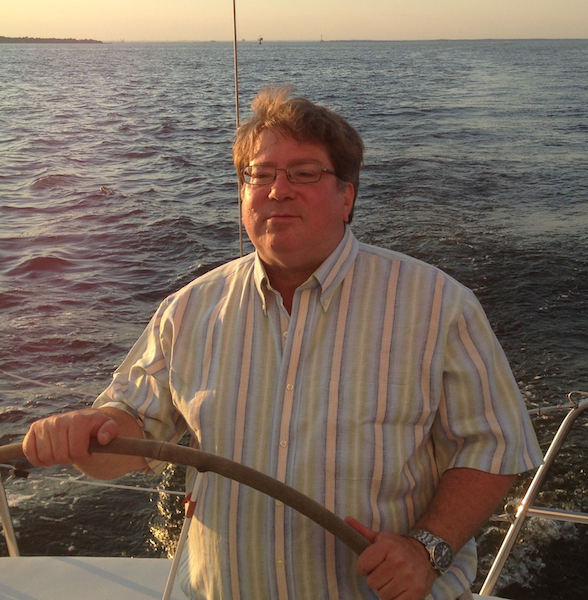 One of the most significant efforts to help open health and humanitarian open source apps seen to date will be taking place tomorrow in Houston, Texas. The event is the Open Source Day 2015, part of the annual Grace Hopper Celebration of Women in Computing (GHC) a conference designed to bring the research and career interests of women in computing to the forefront. The full-day Code-A-Thon is focused on “coding for humanitarian causes in a dynamic, collaborative environment.” This day will give “women from around the world the chance to learn how to contribute to the open source community, regardless of their skill or experience level.”
One of the most significant efforts to help open health and humanitarian open source apps seen to date will be taking place tomorrow in Houston, Texas. The event is the Open Source Day 2015, part of the annual Grace Hopper Celebration of Women in Computing (GHC) a conference designed to bring the research and career interests of women in computing to the forefront. The full-day Code-A-Thon is focused on “coding for humanitarian causes in a dynamic, collaborative environment.” This day will give “women from around the world the chance to learn how to contribute to the open source community, regardless of their skill or experience level.”
- Login to post comments
National Science Foundation Creates $3M CONVERGE Center to Augment Natural Hazards Research
 To enhance the diversity of research underway in natural hazards, the National Science Foundation recently created CONVERGE, a $3 million research center at the University of Colorado Boulder. The center is a resource for the 11-member, NSF-funded Natural Hazards Engineering Research Infrastructure, known as NHERI. One of the NSF 10 Big Ideas, "convergence" describes the merging of scientific disciplines in a coordinated, reciprocal way that fosters the robust collaborations needed for successful inquiry. For NSF, convergence research is driven by a compelling problem that can be solved by deep integration between disciplines.
To enhance the diversity of research underway in natural hazards, the National Science Foundation recently created CONVERGE, a $3 million research center at the University of Colorado Boulder. The center is a resource for the 11-member, NSF-funded Natural Hazards Engineering Research Infrastructure, known as NHERI. One of the NSF 10 Big Ideas, "convergence" describes the merging of scientific disciplines in a coordinated, reciprocal way that fosters the robust collaborations needed for successful inquiry. For NSF, convergence research is driven by a compelling problem that can be solved by deep integration between disciplines.
- Login to post comments
Open Medical Records Community Supports New System In Mozambique
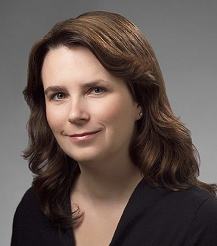 The southern African country of Mozambique suffers under the most extreme challenges for resource-poor countries: economic instability, political strife, civil unrest, corruption and crime, unreliable infrastructure (such as transportation and telecommunications), and a large-scale HIV epidemic that has yet to be declared under control...The nation has enormous need and opportunity for improving its healthcare system and the lives of its residents. In the face of their crisis, Mozambique is working to equip its medical clinics across the nation with an electronic medical records system (EMR). Mozambique believes an EMR can empower clinicians to give high-quality and consistent care to those most in need, while allowing the country to reap the insights of comprehensive reporting for responsive public health decision making...
The southern African country of Mozambique suffers under the most extreme challenges for resource-poor countries: economic instability, political strife, civil unrest, corruption and crime, unreliable infrastructure (such as transportation and telecommunications), and a large-scale HIV epidemic that has yet to be declared under control...The nation has enormous need and opportunity for improving its healthcare system and the lives of its residents. In the face of their crisis, Mozambique is working to equip its medical clinics across the nation with an electronic medical records system (EMR). Mozambique believes an EMR can empower clinicians to give high-quality and consistent care to those most in need, while allowing the country to reap the insights of comprehensive reporting for responsive public health decision making...
- Login to post comments
Open Science Prize Announces Epidemic Tracking Tool as Grand Prize Winner
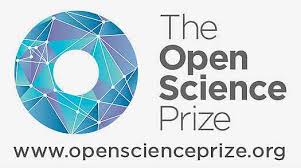 A prototype online platform that uses real-time visualization and viral genome data to track the spread of global pathogens such as Zika and Ebola is the grand prize winner of the Open Science Prize. The international team competition is an initiative by the National Institutes of Health, in collaboration with the Wellcome Trust and the Howard Hughes Medical Institute (HHMI). The winning team, Real-time Evolutionary Tracking for Pathogen Surveillance and Epidemiological Investigation, created its nextstrain.org prototype to pool data from researchers across the globe, perform rapid phylogenetic analysis, and post the results on the platform’s website...
A prototype online platform that uses real-time visualization and viral genome data to track the spread of global pathogens such as Zika and Ebola is the grand prize winner of the Open Science Prize. The international team competition is an initiative by the National Institutes of Health, in collaboration with the Wellcome Trust and the Howard Hughes Medical Institute (HHMI). The winning team, Real-time Evolutionary Tracking for Pathogen Surveillance and Epidemiological Investigation, created its nextstrain.org prototype to pool data from researchers across the globe, perform rapid phylogenetic analysis, and post the results on the platform’s website...
- Login to post comments
Open source bionic leg: First-of-its-kind platform aims to rapidly advance prosthetics
 A new open-source, artificially intelligent prosthetic leg designed by researchers at the University of Michigan and Shirley Ryan AbilityLab is now available to the scientific community. The leg's free-to-copy design and programming are intended to improve the quality of life of patients and accelerate scientific advances by offering a unified platform to fragmented research efforts across the field of bionics. "Our Open-Source Bionic Leg will enable investigators to efficiently solve challenges associated with controlling bionic legs across a range of activities in the lab and out in the community," said lead designer Elliott Rouse, core faculty at U-M's Robotics Institute and assistant professor of mechanical engineering.
A new open-source, artificially intelligent prosthetic leg designed by researchers at the University of Michigan and Shirley Ryan AbilityLab is now available to the scientific community. The leg's free-to-copy design and programming are intended to improve the quality of life of patients and accelerate scientific advances by offering a unified platform to fragmented research efforts across the field of bionics. "Our Open-Source Bionic Leg will enable investigators to efficiently solve challenges associated with controlling bionic legs across a range of activities in the lab and out in the community," said lead designer Elliott Rouse, core faculty at U-M's Robotics Institute and assistant professor of mechanical engineering.
- Login to post comments
Promoting Earthquake Readiness
In Oregon, Washington State and California, an early warning system helps citizens and officials better prepare for and respond to earthquakes. In the early morning hours on August 24, 2014, scientists at UC Berkeley received a “ShakeAlert” – an alarm providing warning of a pending earthquake. Five seconds later, the city of Napa felt a magnitude 6.0 earthquake. That five-second warning was an early success for a broader goal: the creation of an earthquake early warning system that can communicate the size, extent and timing of imminent earthquakes on the West Coast...
- Login to post comments
Sharing Your Internet Connection as a Humanitarian Act
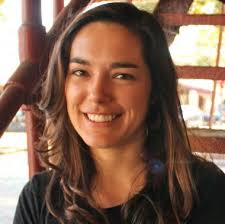 uProxy is a browser extension that lets you share your Internet connection with people living in repressive societies. Much of the world lives in countries that severely censor and restrict Internet access. uProxy makes it a little easier to bring the free and open Internet to some of the darkest corners of the world. How does it work? Find out in this interview with Lucy He, Raymond Cheng, and Salome Vakhtangadze. Lucy and Salome are engineers at Google Ideas, a team at Google that builds tools against oppression. Raymond is a core developer for uProxy and PhD student at the University of Washington, where uProxy is being developed. Together they talk a bit about the future of uProxy and plans for the Open Source Day codeathon taking place during Grace Hopper's Open Source Day later this year...
uProxy is a browser extension that lets you share your Internet connection with people living in repressive societies. Much of the world lives in countries that severely censor and restrict Internet access. uProxy makes it a little easier to bring the free and open Internet to some of the darkest corners of the world. How does it work? Find out in this interview with Lucy He, Raymond Cheng, and Salome Vakhtangadze. Lucy and Salome are engineers at Google Ideas, a team at Google that builds tools against oppression. Raymond is a core developer for uProxy and PhD student at the University of Washington, where uProxy is being developed. Together they talk a bit about the future of uProxy and plans for the Open Source Day codeathon taking place during Grace Hopper's Open Source Day later this year...
- Login to post comments
Surgical Robots to Provide Open-Source Platform for Medical Robotics Research
In a basement on the University of Washington campus perch seven identical robots. Named Raven, each has two winglike arms that end in tiny claws designed to perform surgery on a simulated patient. Read More »
- Login to post comments
The Really Big One
 An earthquake will destroy a sizable portion of the coastal Northwest. The question is when. Most people in the United States know just one fault line by name: the San Andreas, which runs nearly the length of California and is perpetually rumored to be on the verge of unleashing “the big one.” That rumor is misleading, no matter what the San Andreas ever does...Just north of the San Andreas, however, lies another fault line. Known as the Cascadia subduction zone, it runs for seven hundred miles off the coast of the Pacific Northwest, beginning near Cape Mendocino, California, continuing along Oregon and Washington, and terminating around Vancouver Island, Canada. The “Cascadia” part of its name comes from the Cascade Range, a chain of volcanic mountains that follow the same course a hundred or so miles inland...
An earthquake will destroy a sizable portion of the coastal Northwest. The question is when. Most people in the United States know just one fault line by name: the San Andreas, which runs nearly the length of California and is perpetually rumored to be on the verge of unleashing “the big one.” That rumor is misleading, no matter what the San Andreas ever does...Just north of the San Andreas, however, lies another fault line. Known as the Cascadia subduction zone, it runs for seven hundred miles off the coast of the Pacific Northwest, beginning near Cape Mendocino, California, continuing along Oregon and Washington, and terminating around Vancouver Island, Canada. The “Cascadia” part of its name comes from the Cascade Range, a chain of volcanic mountains that follow the same course a hundred or so miles inland...
- Login to post comments
Why Google Is Suddenly Obsessed with Your Photos
Google tends to throw lots of ideas at the wall, and then harvest the data from what sticks. Right now the company is feasting on photos and videos being uploaded through its surprisingly popular app Google Photos. The cloud-storage service, salvaged from the husk of the struggling social network Google+ in 2015, now has 500 million monthly active users adding 1.2 billion photos per day. It’s on a growth trajectory to ascend to the vaunted billion-user club with essential products such as YouTube, Gmail, and Chrome. No one is quite sure what Google plans to do with all of these pictures in the long run, and it’s possible the company hasn’t even figured that out...
- Login to post comments
OpenMRS Worldwide Summit 2015
OpenMRS Inc., the non-profit organization supporting the OpenMRS community, is hosting a new annual global gathering of contributors called OpenMRS Worldwide Summit, focused on building and growing both our community and our software. While our OpenMRS Implementers Meetings will continue to bring together OpenMRS implementers & health care professionals to focus on how OpenMRS is used, the annual Worldwide Summit will bring together OpenMRS people of all types, and will offer them opportunities to share their work, as well as discuss how software will evolve in the coming year. The first OpenMRS Summit is happening 8-14 December 2015 in Singapore. Read on for more information about the schedule and logistics.
- Login to post comments